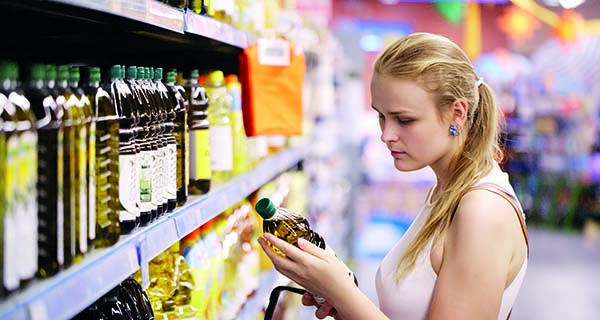
Three retailers in Italy have recently introduced ranges offering healthful products. Lidl Italia is offering two product lines with the goal of promoting healthy nutrition. The Bio Organic brand comprises products entirely of organic origin, while Free From is aimed at consumers who have an intolerance to gluten and lactose. The two lines consist of over 60 products, including frozen, fresh and dried items, seasonings, wine and drinks.
Conad has launched Verso Natura, a brand that focuses on organic, vegetarian, fair trade and environmentally friendly products. There are four sub brands—Bio, Veg, Eco and Equo—each identified by different colour codes.
Pam Panorama has introduced Semplici e Buoni, a range of 60 products designed for specific dietary needs. The range is divided up into five product groups: gluten-free, high fibre, less fat, functional (lactose free and anti-cholesterol) and no added sugar. All products are produced without palm oil.
RETAILERS ADD VEGETARIAN RANGES – Retailers keep expanding their vegetarian ranges. In the Netherlands, Albert Heijn is adding many new products and new packaging to its range of cooking vegetables and vegan products. Coop Switzerland has extended its assortment of vegan and vegeratarian products and now offers more than 500 vegetarian products, of which 350 are vegan. In Germany, Kaufland has launched K-take, a vegetarian range, in more than 650 stores.
PRIVATE LABEL IS GAINING IN ITALY – IRI reports that during the first seven months of 2016, private label products recorded an increase in sales of 1.8% in value and by 0.9% in volume. There has also been an increase of private label assortments. By July, there were an average of 1,384 retailer brand products on the shelves, with significant growth for the organic (+9.5%) and premium (+11.6%) products. As a result, IRI said the market share of private label products reached 18.6%.
BREXIT HURTS BIG BRANDS – It looks like Britain’s decision to leave the European Union is causing troubles for the big brands. Britain’s largest supermarket, Tesco, temporarily stopped selling some popular products from Unilever last month after the manufacturer asked for price increases said to be as high as 10%. Unilever blamed the increases on the weakening British currency following the Brexit decision.
